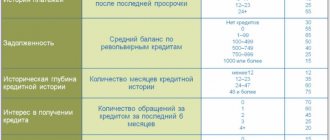A testamentary disposition assumes that the future recipient of the inheritance is not a stranger to the author. They usually bequeath their property to close and reliable people, distributing things at their own discretion. But over time, something may change both in the relationship and in the inheritance itself (for example, the property has acquired debts that the heir cannot afford to pay.
What will happen to the inheritance if the heir under the will did not enter into the inheritance? Let’s look into this material.
How to enter into rights
The process of transferring rights to own objects is regulated primarily by the Civil Code. It states that heirs are divided into two groups: by will and by law.
The first group includes any citizens, regardless of their place of residence, the presence of family ties, family and social status - the main thing is that the author appointed them as legal successors. The second group includes the testator's closest relatives. Reasons why both groups may not inherit property:
- They are recognized as unworthy, since they caused harm to the health, property of the testator, or were even guilty of his death. The testator himself can indicate those who are unworthy in his will.
- They visited the notary and notified in writing that they were giving up their share.
- They did not show up within the allotted time, they did not write either acceptance or refusal.
For the rest, successors from the testamentary disposition are called upon first. Then the relatives of the first priority - if the will does not cover all the property left by the author, or is declared invalid.
Escheat
Property transferred by inheritance is considered escheat if the heirs do not claim it within the allotted six months.
In this case, it goes into the state treasury and becomes the property of the state.
Six months is the period allotted to the heirs to enter into inheritance rights.
During this period, they are required to register the property in their name by contacting a notary or confirming actual acceptance.
Why do they refuse?
Is it possible not to enter into an inheritance? The successors named in the will can also renounce their share, as can the next of kin. Usually they refuse due to:
- Inability to pay the debts of the deceased . It happens that the debt is urgent and large, and if the heir does not pay it within a certain period of time, he will be held responsible for it. Some may not want such a burden. In this case, you will have to write a refusal.
- Dilapidated condition of objects . The heir does not want to or cannot restore them, or considers it inappropriate for himself.
- Simply by unwillingness to receive your share.
Only persons who fall into the category of dependents of the deceased cannot write a refusal. If during the division of property it turns out that someone is owed an obligatory share (it does not always arise), then no one will be able to influence the transfer of this share - neither the person who died with his will, nor the heirs, nor the recipient himself.
If a person voluntarily renounces the share bequeathed to him, the notary will divide it among the remaining applicants . He can write a refusal in favor of one of those called to inherit - then his part will go to the appointed successor in full.
Important! If someone was nominated as an heir, then the refusal can only be written in his favor.
Missed deadlines
If the heir under the will has not entered into the inheritance within the allotted period, he may proceed as follows:
By agreement
Restore the missed deadline by agreement with the remaining participants. If all successors agree to review the shares, then the matter is resolved pre-trial through a notary.
The main thing is to prove a good reason for the absence (he did not know about the death, did not know that he was mentioned in the will, they could not find him, or he was away for a long time and could not entrust his powers to a representative).
If the notary considers the evidence unconvincing, he will explain further steps to restore the term in court.
Through the court
Recover lost time through court. There are two possible options here.
- The first is that the heir under the will does not claim the untested part. He writes not a lawsuit with a demand, but a statement with a request to restore the deadline. The court considers such a case in a special manner, restores the period if there is a good reason, and the heir receives what was indicated by the author of the will.
- The second option is if, in addition to the bequeathed part, the heir also claims a share by law. Then it is better to write a lawsuit in which you demand the restoration of the deadlines and the allocation of the share bequeathed and due by law.
If there are no applicants for the property. Let's say no one wanted to accept it. The notary only had the refusals of everyone who was called up. In this case it is possible:
- Recognition of actual acceptance of inheritance . If someone did not appear before the notary, but took actions to preserve and protect objects, incurred expenses, paid debts for the deceased, organized his funeral from his own funds, he can be recognized as having actually accepted the property of the deceased and receive a paper from the notary confirming this.
- Recognition of inheritance as escheat. Then it becomes the property of the state.
Non-inheritance.
Refusal is not allowed:
1. In favor:
A). Persons who are not heirs by will or heirs by law;
b). Heirs deprived of inheritance.
2. From property inherited under a will, if all property is bequeathed to the heirs.
3. From the obligatory share in the inheritance.
4. In case of substitution.
5. From a part of the inheritance (except for the case when the heir is called to inherit simultaneously on several grounds - both by law and by will).
If the heir does not accept the inheritance (fallen heir) , his share passes to the heirs by law called to inherit, in proportion to their inheritance shares.
CONCEPT, SYSTEM AND OBJECTS OF INTELLECTUAL PROPERTY RIGHT
Intellectual activity is the mental (mental, spiritual, creative) activity of a person in the field of science, technology, literature, art and artistic construction (design).
The concept of “intellectual activity” does not coincide with the concept of “creative activity”. Creative activity presupposes only the novelty of the results of such activity, while intellectual activity is not just any activity, but rather rational human activity, reflecting activity carried out with the help of rational, logical conclusions.
Intellectual property law is a sub-branch of civil law, a set of legal norms and legal institutions that regulate relations in the field of the emergence, use and protection of intellectual property.
Intellectual property is a set of exclusive rights of a citizen or legal entity to the results of creative, intellectual activity, as well as means of individualization of legal entities, products, works and services equal to them under the legal regime (company name, trademark, service mark, etc.) .
Intellectual property rights do not regulate the process of intellectual activity that culminates in the creation of new, creatively independent results in the field of science, technology, literature and art. This subbranch of civil law protects the results of intellectual activity, which represent intangible benefits.
The protection of intellectual property is regulated by Chapter 69 (Section VII) of Part Four of the Civil Code of the Russian Federation.
The system of Russian intellectual property law consists of the following institutions:
a) copyright – a set of legal norms regulating social relations arising in connection with and regarding the creation and use of works of science, literature and art;
b) rights related to copyright - the rights of performers, producers of phonograms and broadcasting and cable broadcasting organizations;
c) patent law - a set of legal norms regulating property, as well as associated personal non-property relations arising in connection with the creation and use of inventions, utility models and industrial designs;
d) intellectual property right to a trademark (service mark);
e) intellectual property rights to the company name;
f) intellectual property rights to integrated circuit topologies;
g) intellectual property rights to computer programs and databases;
h) intellectual property rights to selection achievements;
i) legal relations in the field of commercial and official secrets.
The objects of intellectual property rights are objects of intellectual (creative) activity.
Objects of intellectual property and objects of real rights are included in the general institution of property rights. Objects of property rights include property (things, money, securities) and intangible goods (intellectual property objects).
However, real and intellectual rights have different subject composition. In property law, this is the owner; in intellectual property law, this is the owner. Different methods of protection are applied to objects of property and intellectual rights. For example, you cannot reclaim an object of intellectual property through a vindication claim. Protection of the rights of intellectual property owners is carried out using the regime of protectability of objects of exclusive rights. A number of intellectual property objects acquire the status of protectable from the moment of embodiment in some objective form (for example, works of painting, sculpture, literature), others - from the moment of their registration by authorized bodies and the issuance of protection documents (for example, inventions, utility models, trademarks). signs and service marks).
A thing and ownership are inextricably linked. The destruction of a thing terminates the right of ownership to it. An intellectual property object exists independently of the thing in which it is materialized. If a book is destroyed, the intellectual property right to a literary work does not cease.
Objects of intellectual (creative) activity include:
a) works of science, literature, art (the results of intellectual activity expressed in books, paintings and other images, sculptures, monuments, etc.);
b) objects of industrial property (inventions, utility models, industrial designs);
c) means of individualization of a legal entity, its products, works or services performed (company name, trademark, service mark, name of place of origin of goods, etc.);
d) information – information about persons, objects, facts, events, phenomena and processes, regardless of the form of their presentation (official, commercial secrets, “know-how” are subject to protection under intellectual property rights).
Acceptance by will: terms
The standard period is 6 months from the date of death of the testator. If this day is not known exactly and the fact of death is recognized through the court, then six months will be counted from the day the court decision enters into force.
The deadline is subject to change. If all known heirs have written a refusal, then six months will be counted from the date of the last refusal.
What to do if you didn’t inherit the inheritance on time because you didn’t know about the person’s death? Then you need to come to the notary within three months from the moment this fact was discovered and report the missed deadline.
In fact, the fact of death can become known to the heir both in a year and in five years. You can try to get what is due under the will. Most likely, the intervention of a judge will be required.
What if six months have already passed?
When the testator dies, after the funeral procedures the heirs are advised to gain strength and perform several steps to enter into the inheritance before six months have passed:
- Collect a list of documents and visit a notary at the place where the inheritance was opened. Usually this is the office at the address of registration of the property or the testator himself.
- Before submitting documents, pay the state fee for issuing a certificate. The amount is 0.3% of the value of the property for close relatives, for others - 0.6%, but not more than 100,000 rubles.
- Receive a certificate of inheritance rights - it is issued after 6 months. This period is provided so that other successors can also declare their rights and they will not have to later challenge the inheritance of property by other people in court.
Problems arise when people do not know what to do if they did not manage to enter into an inheritance within 6 months, because in this case it will not be possible to dispose of the property (sell, live in it, exchange or donate). There are two solutions here:
- Go to court to restore missed deadlines.
- Agree with other legal successors for a peaceful resolution of the issue.
Both options for accepting an inheritance involve a number of nuances that anyone who does not know what to do if the heir has not declared himself within 6 months needs to be aware of, but wants to receive the inheritance legally.
Restoring the deadlines for accepting an inheritance is possible if the successor has valid reasons for missing them. This includes serious illness, long-term treatment in a medical institution, a business trip abroad, work in another locality or country, as well as ignorance about opening an inheritance case.
In general, the whole procedure looks like this:
- A direct heir who missed the deadline after the death of his parents or other relatives files a claim in court, having previously paid the state fee. In addition to the claim, documents confirming the existence of valid reasons will be required.
- Upon completion of the consideration of the case materials, a court decision is drawn up. With it, the successor visits the notary, and on its basis the inheritance is accepted.
- A corresponding certificate is issued.
- The assignee visits Rosreestr and registers the property in his name. If necessary, he can privatize it, if this has not been done by the testator earlier.
Problems during recovery
If the heir under the will did not show up on time, the notary distributed his share among the remaining heirs. They could have time to receive papers from a notary, register something in their name at the registration authorities, and even sell some objects.
Litigation has several solutions:
- At the stage of obtaining certificates from a notary, the court will cancel the papers already received and distribute the property according to the new number of heirs. Of course, the testamentary disposition will be taken into account, the specified share will go to the successor at the will of the testator, and the remaining property will be distributed in new proportions.
- At the stage of formalized rights to property, the court cancels documents received for apartments, cars and other objects. And in the future it distributes property in a new way.
- If part of the property (or the entire estate) has already been sold , then most likely the defendants will be ordered to pay monetary compensation to the heir under the will for the property that was bequeathed.
All items are valued on the date of death of the testator. Any monetary compensation is calculated based on this assessment.



![eCabbage [CPL] RU](https://standart-rzn.ru/wp-content/uploads/ekapusta-cpl-ru-330x140.jpg)





